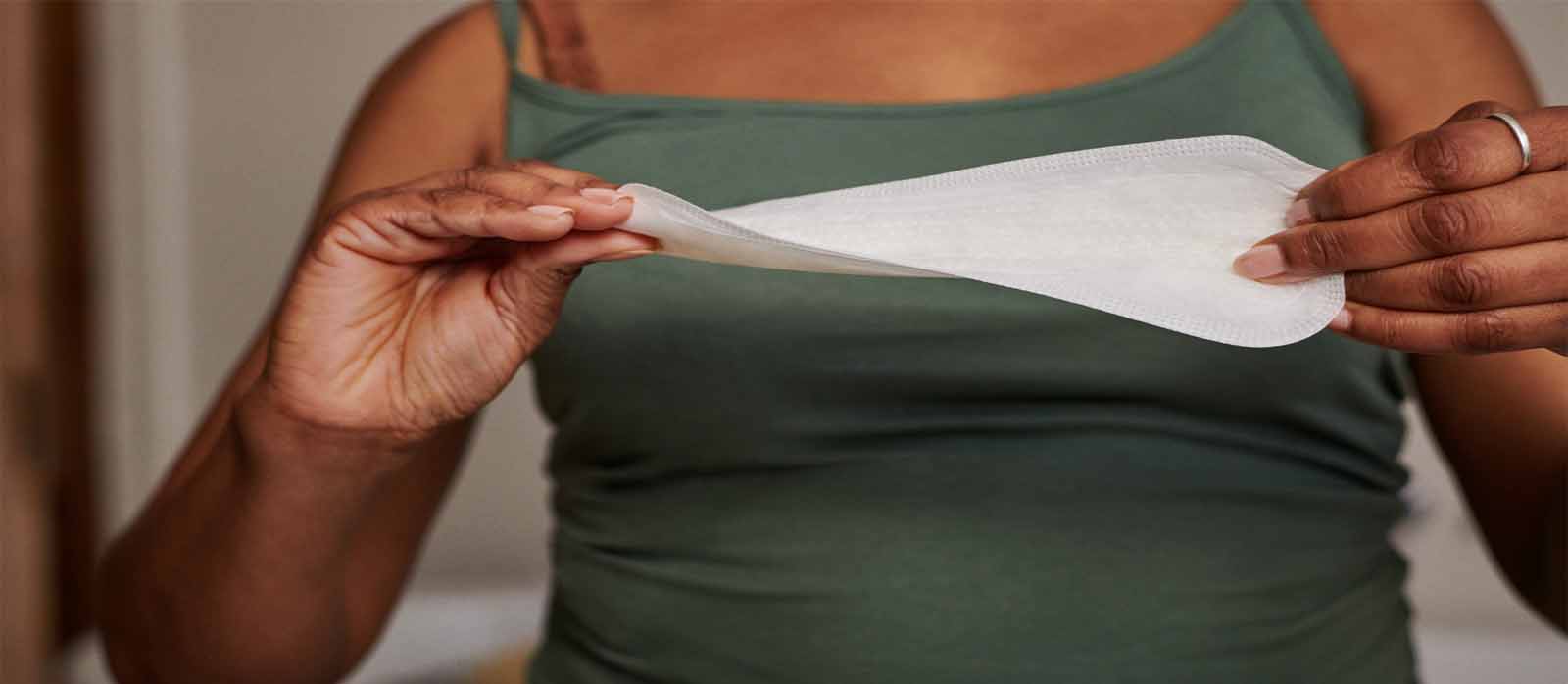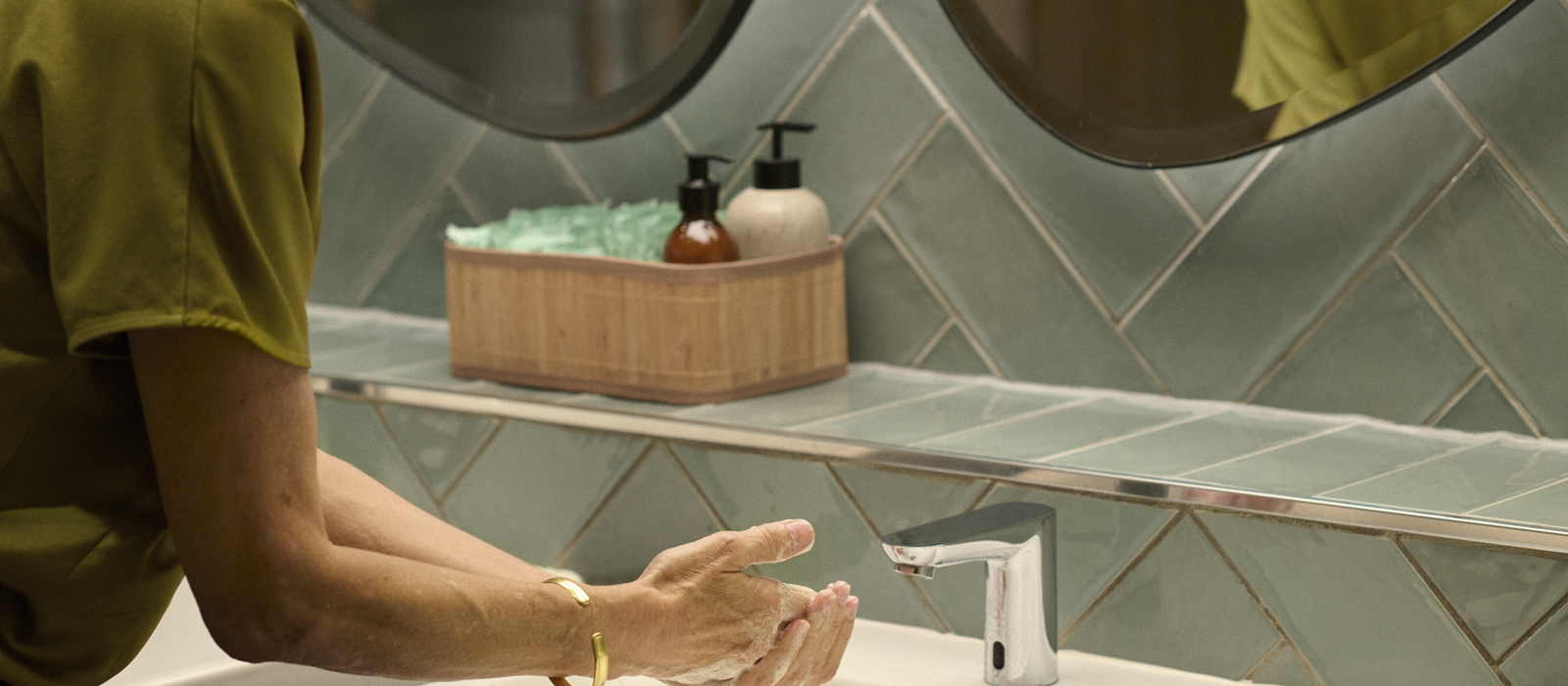Oct 21, 2025
If you’ve noticed spots of blood in your urine or find that you need to use the bathroom more often, you may be starting to worry. While it’s easy to blame stress or aging, it’s natural to wonder if these common bladder symptoms could mean something more.
That’s why we’re here. To give you the info to understand what may be happening in your body, and to help you feel confident and in control.
If you’re worried about conditions like bladder cancer, here’s what to look out for, and when it may be time to check in with a doctor.
What is Bladder Cancer?
Let’s start off by looking at what bladder cancer is.
Bladder cancer develops when abnormal cells lining the bladder grow out in an uncontrolled manner.1 Over time, these abnormal cells can form tumors which may spread to nearby organs and muscles.2
Bladder cancer is the 10th most common cancer in the US.3 While men are more likely to develop bladder cancer, women often get their diagnosis later because early signs of bladder cancer could look like other conditions they are more likely to have.3,4
Being 55 years or older, as well as habits such as smoking, puts you at a higher risk of getting bladder cancer.2 Other risk factors are:2
- Not drinking enough fluids.
- Exposure to cancer-causing chemicals.
- Having a family history of bladder cancer.
- Drinking water contaminated with arsenic or chlorine.
Early Symptoms of Bladder Cancer
While symptoms could look different for everyone,2 here are some early signs of bladder cancer:
- Blood in the urine: You might notice your urine looks rusty, pink or bright red.5 In some cases, the amount of blood can be too small for you to see but can be picked up in a urine test performed by a doctor.5
- Bladder habit changes: These can include urinary urgency, where you suddenly feel an intense need to pee, or urge incontinence, when that strong urge leads to leaks.5
You may also notice pain or burning when you pee.5
Don’t worry, these symptoms don’t always mean you have bladder cancer.5 It’s best to see your doctor if you notice them, since they could also point to other conditions.5
Symptoms in Men vs. Women
Bladder cancer symptoms in men and women are usually the same.6 Men are more likely to develop it due to risk factors such as smoking and occupational chemical exposures in jobs typically performed by men, like manufacturing work or firefighting.2,6
When spotting early signs, diagnosis in men may happen sooner than for women.6 Conditions like urinary tract infections, menopause, and menstruation are more likely to mask the symptoms.5 And this can sometimes delay earlier detection, especially with signs like blood in the urine.6
Regardless of gender, it’s important not to ignore recurrent bladder symptoms.4 Talk to your doctor early, as timely detection could make a difference in your treatment.5
Visiting the bathroom more often, or experiencing some dribbles? Explore the causes of overactive bladder in men.
Advanced Bladder Cancer Symptoms
While early detection is key to bladder cancer, symptoms can be overlooked in the beginning, and when bladder cancer advances, you may notice signs like stomach pain or swelling in the lower body.5
If the cancer spreads beyond your bladder, these additional symptoms could appear:5
- Fatigue
- Loss of appetite
- Unintended weight loss
- Bone pain
- Pain on one side of the lower back.
Diagnosis and Tests for Bladder Cancer
Don’t hesitate to see your doctor if you notice possible bladder cancer symptoms, especially blood in your urine or UTI-like symptoms that keep coming back and don’t improve with treatment.5,6
To help make a bladder cancer diagnosis and guide the next steps, your doctor may use tests like:2,5
- A cystoscopy to see the inside of your bladder with a tiny camera.
- Urine tests to check for UTIs, traces of blood or abnormal cells.
- Imaging (Like a CT scan or MRI) to see where cancer may be present.
- A biopsy when there are calls or tumors present to examine them under a microscope.
Treatment Options for Bladder Cancer
Bladder cancer treatment depends on the stage of the cancer, your overall health, and symptoms.2 Treatment based on these stages include:
Stages 0 and 1
When the cancer hasn’t spread into the bladder muscle, treatment may include:2
- Surgery to remove the tumor
- Chemotherapy or immunotherapy
Stages 2–4
This means the cancer has spread into the bladder muscle or beyond, treatment here could involve:2
- Chemotherapy
- Immunotherapy
- Radiation therapy
- Surgery, to remove part of the bladder, or the whole bladder in extreme cases or later stage cancer
In some cases, with stage 4 bladder cancer, you may also get the option to take part in clinical drug trials to test new treatments or new combinations of existing treatments.2
Other Effects of Bladder Cancer Treatment
When you get treatment for bladder cancer, the treatments could affect fertility, urinary function, and sexual health differently for men and women:7,8
- For women, surgery or radiation may affect reproductive organs, vaginal health, or sexual comfort.7
- For men, treatments can decrease erectile function and ejaculation.7
- For both, treatments may sometimes lead to bladder leaks or incontinence.8
It’s normal to have concerns about these changes. But rest assured, you can bring them up with your doctor and they will help you choose the option that best supports both your health and your quality of life.
Outlook and Prognosis for Bladder Cancer
When dealing with bladder cancer, your outcome often depends on the stage of your cancer, as well as your age and overall health.1 Doctors sometimes use a 5-year relative survival rate to give you a general picture.2
The rate shows how many people with the same stage of bladder cancer are alive five years after diagnosis compared to people without cancer.2 Here’s how survival rates compare by stage:2
- Stage 0: When the cancer is still within the bladder lining, the survival rate is about 97%.
- Stages 1 and 2: When the cancer is still in the bladder, the survival rate is about 71%.
- Stage 3: Once it spreads to nearby lymph nodes or organs, the survival rate drops to about 39%.
- Stage 4: When it spreads to distant parts of the body, the survival rate is about 8%.
While early detection improves outcomes, bladder cancer also has a relatively high chance of returning even after successful treatment.9 That’s why regular follow-ups are so important, as they help your doctor catch any changes early and respond promptly.9
Prevention and Reducing Risk for Bladder Cancer
Preventing bladder cancer may not be entirely possible, since not all cases are preventable and the exact cause isn’t always clear.1,2
You can, however, still lower your risk by reducing high-risk factors such as smoking (including second-hand smoke) and workplace chemical exposure.1,2
Other helpful bladder cancer prevention tips include:
- Drink plenty of water to stay hydrated.2
- Maintain a healthy lifestyle through diet and exercise.
- Go for routine check-ups if you’re at higher risk.
Living with Bladder Cancer
Both the diagnosis and treatment of bladder cancer can be life-changing, and feelings like anxiety and depression may surface. Making lifestyle changes before or after treatment can also take a toll on your mental well-being.
That’s why having a support system in place matters. Even having a small circle with friends and family to support you, joining patient groups, or attending counselling sessions could make a significant difference on the harder days.
You also don’t have to manage your symptoms or treatment side effects alone. Regular follow-ups with your doctor could help you find ways to ease symptoms.
And remember, if you're experiencing leaks or dribbles, TENA offers incontinence products for men and women designed with your comfort, skincare, and confidence in mind.
Want more information about having an overactive bladder? If you'd like to learn more about tips to help an overactive bladder, you can read our article.
When to Seek Medical Advice
In addition to seeing your doctor if you notice blood in your urine or recurring infections,5,6 it’s also a good idea to schedule regular checkups if you:5
- Have a family history of bladder cancer
- Have multiple risk factors for bladder cancer
Remember, if you’re ever unsure about a symptom, don’t hesitate to talk to your doctor.
While everything about bladder cancer may feel scary, it’s important to remember that it is treatable, especially when caught early.9 No matter what, the most important step is this: if you ever notice potential symptoms or feel unsure, talk to your doctor.
FAQs
What are the first signs of bladder cancer?
One of the most common early symptoms of bladder cancer is blood in your urine.5 Other early changes could include needing to use the bathroom more often, or experiencing pain when you pee.5 These symptoms don’t always mean cancer,5 but it’s important to see your doctor to make sure you rule it out.
How do bladder cancer symptoms differ in men and women?
Bladder cancer symptoms in men and women are the same.6 For women, it may help to keep an eye on symptoms that don’t improve with usual treatment or notice if blood in urine shows up outside of their period.6
When should I see a doctor about possible bladder cancer symptoms?
You could see your doctor right away if you notice blood in your urine or recurring bladder symptoms.4,5 Even if you’re unsure, checking in early can give you peace of mind and support better outcomes.
References
1. Bladder cancer | Causes, Symptoms & Treatments [Internet]. www.cancer.org.au. Available from: https://www.cancer.org.au/cancer-information/types-of-cancer/bladder-cancer
2. Hobbs H. Bladder Cancer: Causes, Types, and Symptoms [Internet]. Healthline. 2017. Available from: https://www.healthline.com/health/bladder-cancer
3. “Key Statistics for Bladder Cancer.” American Cancer Society, www.cancer.org/cancer/types/bladder-cancer/about/key-statistics.html. Accessed 9 Sept. 2025.
4.Heid M. How Bladder Cancer Differs in Women and Younger Adults [Internet]. TIME. Time; 2022. Available from: https://time.com/6233670/bladder-cancer-women-younger-adults/
5. Yetman D. Symptoms of Bladder Cancer [Internet]. Healthline. Healthline Media; 2023. Available from: https://www.healthline.com/health/bladder-cancer/symptoms-of-bladder-cancer
6.Fuad Elkhoury. Orange County Urology Associates [Internet]. Orange County Urology |. 2025 [cited 2025 Sep 1]. Available from: https://www.orangecountyurology.com/blog/how-bladder-cancer-symptoms-can-differ/
7. Sex life | Bladder cancer | Cancer Research UK [Internet]. www.cancerresearchuk.org. Available from: https://www.cancerresearchuk.org/about-cancer/bladder-cancer/living-with/sex-life
8.Problems after bladder cancer surgery [Internet]. www.cancerresearchuk.org. Available from: https://www.cancerresearchuk.org/about-cancer/bladder-cancer/treatment/invasive/surgery/problems-after
9. Cxbladder. Bladder Cancer Recurrence: The Importance of Surveillance [Internet]. Cxbladder.com. 2022. Available from: https://www.cxbladder.com/row/blog/the-importance-of-monitoring-and-surveillance/






































































































